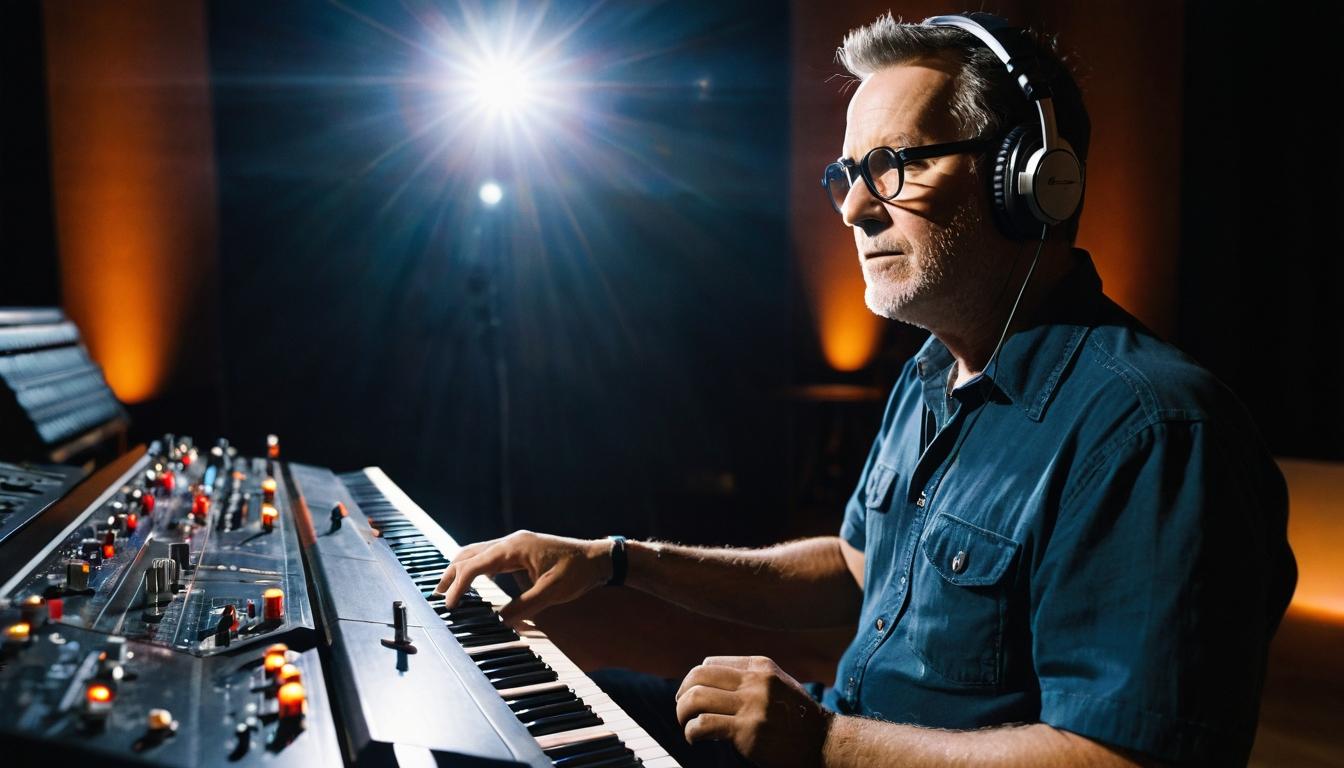The camera pans across a desolate landscape, the protagonist's face etched with despair. Without a single word spoken, we understand their emotional journey. This cinematic magic doesn't happen by accident—it's carefully orchestrated by composers who have become the true architects of modern film storytelling. While audiences flock to theaters for visual spectacle, the real emotional heavy lifting happens in the score, where composers are quietly rewriting the rules of cinematic narrative.
In the golden age of streaming, film music has evolved from background accompaniment to foreground storytelling. Composers like Hildur Guðnadóttir, whose haunting cello work in 'Joker' became a character in itself, demonstrate how music can shape audience perception more powerfully than dialogue. The Icelandic composer's approach—recording in abandoned power stations to capture the right acoustic environment—shows the extraordinary lengths today's musicians go to serve the story. This isn't just composing; it's sonic world-building.
Independent films are leading this revolution, often out of necessity. With smaller budgets forcing creative solutions, indie composers have developed innovative techniques that major studios are now adopting. The use of found sounds—everything from creaking floorboards to subway trains—has become a signature of contemporary scoring. These organic textures create intimacy and authenticity that traditional orchestration sometimes lacks, proving that emotional resonance doesn't require a 100-piece orchestra.
Technology has democratized film scoring in unexpected ways. Where once only major studios could afford elaborate recording sessions, today's composers can create cinematic soundscapes from their home studios. But this accessibility comes with challenges—the market is flooded with generic, template-driven scores that lack personality. The composers who stand out are those who embrace limitations, turning technical constraints into creative opportunities rather than obstacles.
The relationship between director and composer has transformed from hierarchical to collaborative. Directors like Christopher Nolan and Denis Villeneuve treat their composers as equal storytelling partners, involving them from pre-production through final mix. This integrated approach allows music to develop organically with the film's visual language rather than being slapped on as an afterthought. The result is scores that feel inseparable from the images they accompany.
Film music criticism has emerged as its own art form, with dedicated publications and podcasts analyzing scores with the same depth that film critics bring to visual storytelling. This critical attention has elevated public appreciation for the craft, creating audiences who actively seek out scores separate from their films. The success of soundtrack albums and live-to-picture concerts demonstrates that film music now exists as both accompaniment and standalone art.
Genre boundaries continue to blur in fascinating ways. Horror scores incorporate elements of classical minimalism, while romantic comedies borrow from electronic music. The most interesting work often happens at these intersections, where composers defy expectations to create something genuinely new. This cross-pollination reflects our increasingly eclectic musical tastes as a culture while pushing film scoring into uncharted territory.
Behind every great score lies a complex web of business negotiations and creative compromises. Composers navigate tight deadlines, budget constraints, and studio notes while maintaining artistic integrity. The most successful ones understand that film scoring is both art and commerce, finding ways to serve the story while satisfying multiple stakeholders. This balancing act requires diplomatic skills equal to their musical talents.
The future of film music looks both exciting and uncertain. Artificial intelligence threatens to automate certain aspects of composition, while streaming algorithms prioritize familiarity over innovation. Yet the human element—the intuitive understanding of emotional nuance that machines can't replicate—remains the composer's greatest asset. The most forward-thinking musicians are exploring how to collaborate with technology rather than compete against it.
What's clear is that film music has transcended its supporting role to become central to how we experience cinema. The next time you find yourself moved by a film, pay attention to the score. You might discover that what you thought was great acting or directing was actually brilliant composition, working its subtle magic on your emotions. In an age of visual overload, the most powerful storytelling often happens not through your eyes, but through your ears.
The unsung heroes: how film composers are revolutionizing movie storytelling

